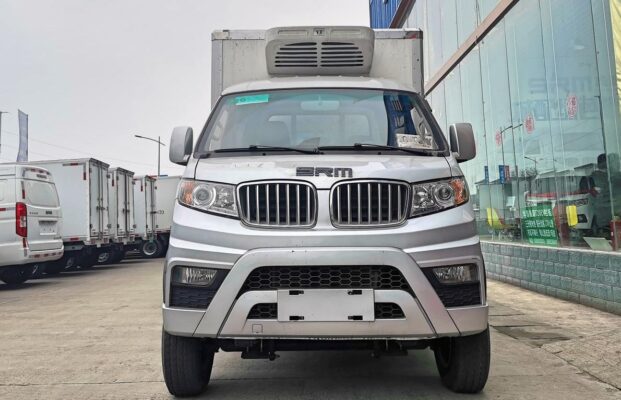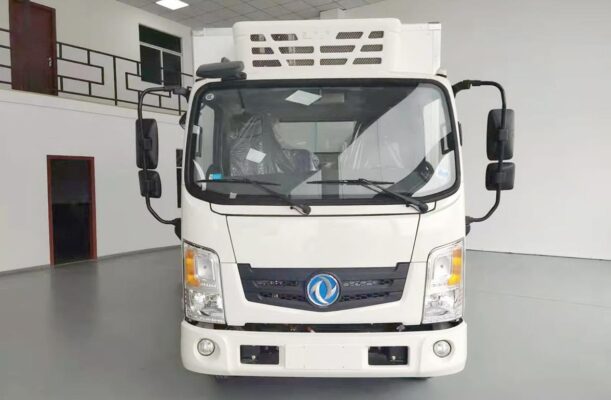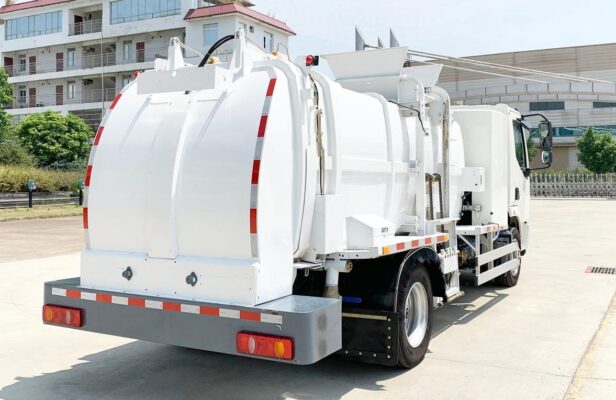Electric Truck News
Why Choose an All-Electric Pickup Truck
With environmental issues like climate change and air pollution increasingly taking center stage, the automotive industry is experiencing a significant shift toward eco-friendly alternatives. All-electric pickup trucks have emerged as a popular choice among consumers due to their environmental benefits, energy efficiency, low noise output, and reduced maintenance costs. Unlike traditional fuel vehicles, electric pickups run entirely on electricity, which offers a cleaner, more sustainable alternative to fossil fuels. As a result, all-electric pickups contribute to better air quality, lower greenhouse gas emissions, and reduce reliance on finite fossil fuel resources.
Bunga qo'chimcha, advancements in charging infrastructure and government support have made electric pickups more accessible and convenient to own and operate. Let’s explore the reasons why an all-electric pickup truck can be a smart choice for eco-conscious and budget-savvy drivers alike.
1. Zero Emissions: A Key Benefit for Environmental Protection
All-electric pickup trucks are considered zero-emission vehicles because they produce no tailpipe emissions, setting them apart from traditional fuel-powered vehicles that emit pollutants as part of their combustion process. Here’s why:
- No Exhaust Emissions: Traditional vehicles rely on the combustion of gasoline or diesel, which releases pollutants like carbon dioxide (CO₂), nitrogen oxides (NOx), and particulate matter (PM). These pollutants contribute to climate change, smog, and health issues. Electric trucks, on the other hand, use battery power to run their electric motors, which operate without combustion and therefore emit no pollutants. This lack of emissions makes electric pickups an effective option for reducing air pollution in densely populated areas and areas prone to poor air quality.
- Climate Change Impact: The transportation sector is one of the largest sources of greenhouse gas emissions. By using renewable or cleaner energy sources for electricity generation, electric pickups can further reduce their carbon footprint and mitigate climate change. Thus, choosing an all-electric pickup directly supports cleaner air and a more sustainable environment.
2. Energy Efficiency and Eco-Friendliness
Electric pickups are not only zero-emission vehicles but are also inherently more energy-efficient than traditional vehicles, maximizing the energy that goes into powering the vehicle.
- High Energy Conversion Efficiency: Electric motors have a significantly higher energy conversion efficiency compared to internal combustion engines (ICEs). ICEs convert only about 20-30% of the fuel’s energy into movement, with the rest lost as heat. In contrast, electric motors have conversion efficiencies of up to 85-90%, enabling them to use a larger portion of the input energy for propulsion. This efficiency reduces overall energy demand, which is especially beneficial for vehicles like pickups that often handle heavy loads.
- Regenerative Braking: All-electric pickups are typically equipped with regenerative braking systems that convert kinetic energy lost during braking into electrical energy. This captured energy is then stored in the battery and can be reused, making electric pickups not only more energy-efficient but also helping to extend the vehicle’s range. The regenerative braking system also reduces wear and tear on the braking components, leading to longer brake system life and further contributing to reduced maintenance costs.
- No Fuel Combustion: Since electric pickups operate without combustion, they avoid the substantial heat losses associated with gasoline or diesel engines, which translates to greater energy savings and a reduced environmental impact.
3. Quieter Operation Reduces Noise Pollution
Noise pollution is a significant concern in urban areas, with traffic noise negatively affecting both public health and quality of life. All-electric pickup trucks provide a solution to this issue:
- Silent Electric Motors: Electric motors are remarkably quiet compared to combustion engines, which produce substantial noise from fuel explosions and exhaust systems. Electric pickups operate with minimal noise, emitting only a gentle hum during acceleration and nearly no sound at low speeds. This quiet operation makes electric pickups ideal for urban environments, as they reduce overall traffic noise and create a more pleasant driving and living environment.
- Enhanced Driver and Passenger Comfort: The quiet nature of electric motors enhances the driving experience by minimizing engine noise and vibrations, allowing drivers and passengers to enjoy a smoother and more comfortable ride. Qo'shimcha, the reduced noise levels benefit pedestrians and residents in areas with heavy traffic, creating a more peaceful atmosphere.
4. Lower Maintenance Costs and Simplified Servicing
All-electric pickups generally require less maintenance than their traditional counterparts. This is due to the simplicity of electric motor systems and the absence of certain components commonly found in fuel vehicles:
- No Oil Changes or Fuel System Maintenance: Electric pickups do not have combustion engines, fuel systems, or exhaust systems. This eliminates the need for oil changes, spark plug replacements, or fuel filter changes, which are routine in traditional vehicles. As a result, electric pickups incur lower maintenance costs over their lifespans, making them more cost-effective for owners.
- Simplified Transmission Systems: Most electric vehicles use a single-speed transmission with fewer moving parts than the complex multi-speed transmissions found in ICE vehicles. This simplicity means there are fewer components that can wear out or break, leading to further savings on maintenance and repairs.
- Extended Brake System Life: Due to regenerative braking, electric pickups experience less wear on brake pads and rotors, as the braking system itself is used less frequently. This can reduce brake maintenance costs and extend the life of the vehicle’s braking components, making electric pickups both economical and efficient.
5. Increasingly Convenient Charging Options
Charging an electric pickup has become more convenient than ever, thanks to ongoing advancements in charging technology and the expansion of charging infrastructure:
- Fast-Charging Technology: Most modern electric pickups are compatible with fast-charging stations, which allow batteries to be charged quickly and efficiently. With fast charging, electric pickups can achieve significant battery replenishment in 30-45 minutes, making it feasible for long-distance travel with minimal downtime. Qo'shimcha, improvements in battery technology continue to enhance range and charging speeds, providing electric pickups with longer driving distances between charges.
- Expanding Charging Infrastructure: Public charging stations are rapidly becoming more accessible in cities, shopping centers, and along highways. This expansion provides electric pickup drivers with a wide range of charging options, reducing concerns over range and making electric trucks more convenient for everyday use. Home charging options, including Level 2 chargers, further enhance convenience by allowing drivers to recharge their vehicles overnight.
- Government Incentives and Support: Many governments around the world are encouraging the adoption of electric vehicles by offering incentives for charging station installations and providing subsidies for EV purchases. As a result, the infrastructure supporting electric pickups continues to grow, making ownership more practical and convenient.
6. Financial and Environmental Benefits
An all-electric pickup provides both economic and environmental benefits that make it an appealing choice for eco-conscious drivers:
- Long-Term Savings: Despite higher upfront costs, electric pickups can offer significant long-term savings due to lower fuel and maintenance expenses. Owners save on fuel, and with fewer maintenance needs, electric pickups often have lower annual running costs than their ICE counterparts.
- Reduced Dependence on Fossil Fuels: Electric pickups contribute to a reduction in oil consumption and reliance on fossil fuels, fostering a shift toward cleaner, renewable energy sources. This aligns with global sustainability goals and helps countries become less dependent on imported oil, thereby enhancing energy security.
- Positive Impact on Air Quality and Climate: The reduced emissions and lower carbon footprint of electric pickups support cleaner air and climate change mitigation. By adopting all-electric vehicles, consumers contribute to a decrease in greenhouse gases and pollutants that harm both human health and the environment.
Conclusion: The Ideal Choice for Sustainable, Efficient Transportation
Choosing an all-electric pickup truck offers a range of advantages, from zero emissions and high energy efficiency to reduced noise pollution and lower maintenance costs. With their quiet operation and efficient use of energy, electric pickups present a comfortable and eco-friendly driving experience. Government support, technological advancements, and expanding charging infrastructure further alleviate range concerns, making electric pickups increasingly practical for a variety of driving needs.
For environmentally conscious consumers seeking an economical and sustainable alternative, an all-electric pickup truck presents an ideal solution. It offers a blend of environmental protection, energy efficiency, reduced noise pollution, and long-term financial savings, making it a compelling choice in today’s market. As electric technology continues to evolve, electric pickups represent not only the future of transportation but also a meaningful contribution toward a cleaner, healthier planet.





